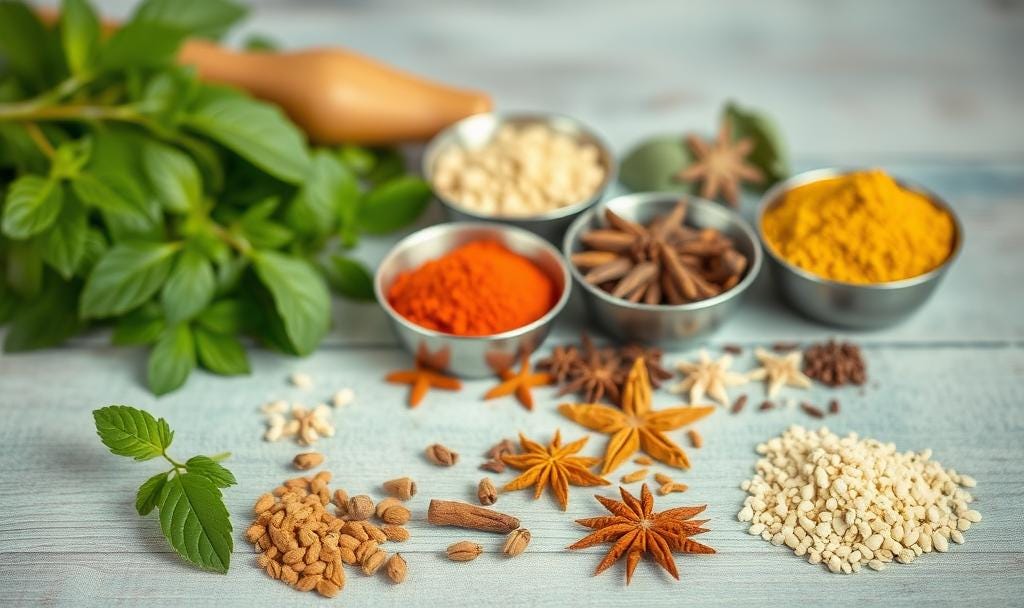Inflammation is a natural response by your body to protect itself from harm. However, chronic inflammation can lead to various health issues, including heart disease, arthritis, and even cancer. Fortunately, nature provides us with powerful tools to combat inflammation, and many of these tools can be found right in your spice rack. Here are seven anti-inflammatory spices that you can feel extra good about using, according to nutrition experts.
1. Turmeric
Turmeric is often hailed as the king of anti-inflammatory spices. Its active compound, curcumin, has been extensively studied for its anti-inflammatory and antioxidant properties. Curcumin works by inhibiting several molecules known to play major roles in inflammation. Adding turmeric to your diet can help reduce inflammation and improve symptoms of conditions like arthritis and inflammatory bowel disease.
How to Use It: Turmeric can be added to soups, stews, and curries. For better absorption, pair it with black pepper, which contains piperine, a compound that enhances curcumin absorption.
2. Ginger
Ginger is another potent anti-inflammatory spice. It contains gingerol, a bioactive compound that has powerful anti-inflammatory and antioxidant effects. Ginger can help reduce muscle pain, soreness, and inflammation associated with osteoarthritis.
How to Use It: Fresh ginger can be grated into teas, smoothies, and stir-fries. Ground ginger is also a great addition to baked goods and spice blends.
3. Cinnamon
Cinnamon is not only delicious but also packed with anti-inflammatory properties. It contains cinnamaldehyde, which helps reduce inflammation and fight bacterial infections. Cinnamon has been shown to lower blood sugar levels and improve insulin sensitivity, making it a great spice for those with diabetes or metabolic syndrome.
How to Use It: Sprinkle cinnamon on your oatmeal, yogurt, or coffee. It can also be used in baking and savory dishes like chili and stews.
4. Garlic
Garlic is well-known for its immune-boosting properties, but it also has significant anti-inflammatory effects. Allicin, the active compound in garlic, helps reduce inflammation and may lower the risk of chronic diseases. Garlic has been shown to reduce the production of pro-inflammatory cytokines, which are molecules that promote inflammation.
How to Use It: Add minced garlic to your salad dressings, marinades, and sauces. Roasted garlic can be spread on bread or mixed into mashed potatoes for a flavorful twist.
5. Cayenne Pepper
Cayenne pepper contains capsaicin, a compound that gives it its heat and has powerful anti-inflammatory properties. Capsaicin works by inhibiting substance P, a neuropeptide associated with inflammatory processes. It can help reduce pain and inflammation in conditions like arthritis and neuropathy.
How to Use It: Sprinkle cayenne pepper on your eggs, soups, and roasted vegetables. It can also be added to spice rubs for meats and seafood.
6. Black Pepper
Black pepper is often used to enhance the flavor of dishes, but it also has anti-inflammatory benefits. Piperine, the active compound in black pepper, has been shown to reduce inflammation and improve the absorption of other anti-inflammatory compounds like curcumin.
How to Use It: Freshly ground black pepper can be added to virtually any savory dish. It's especially effective when paired with turmeric to boost curcumin absorption.
7. Cloves
Cloves are rich in eugenol, a compound with potent anti-inflammatory and antioxidant properties. Eugenol has been shown to reduce inflammation and oxidative stress, which can help protect against chronic diseases. Cloves also have antimicrobial properties, making them a great addition to your diet for overall health.
How to Use It: Cloves can be used in both sweet and savory dishes. Add ground cloves to baked goods, or use whole cloves to infuse flavor into soups, stews, and teas.
Conclusion
Incorporating these seven anti-inflammatory spices into your diet is a simple and delicious way to combat inflammation and promote overall health. Remember, while these spices can provide significant health benefits, they should be used as part of a balanced diet and healthy lifestyle. Always consult with a healthcare professional before making any significant changes to your diet, especially if you have underlying health conditions.
By making these spices a regular part of your meals, you can enjoy their flavors while reaping their powerful anti-inflammatory benefits. So go ahead, spice up your life and feel extra good about it.




